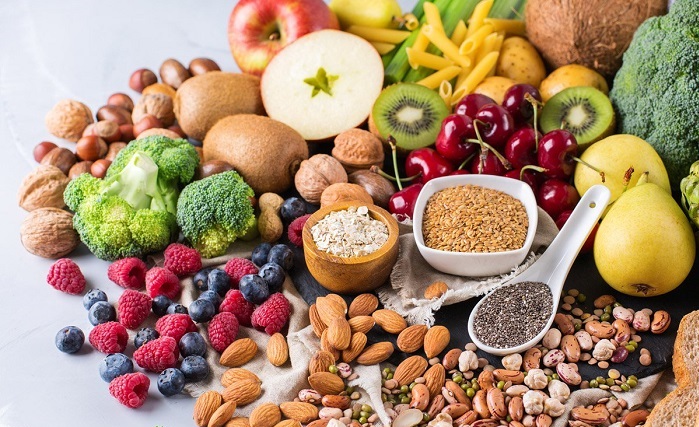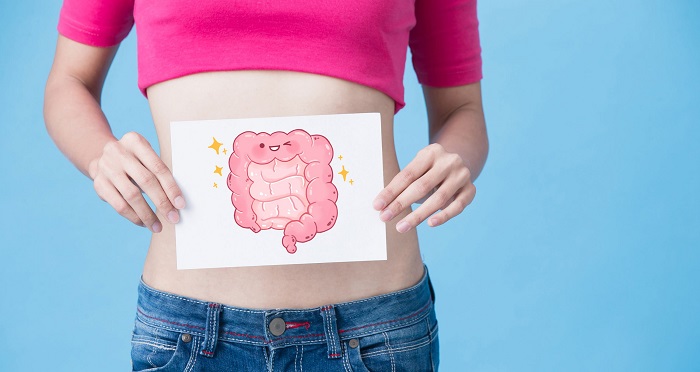
Your Gut Health Is More Important Than You Think
Learn why your relationship with your gut and your gut health is more important for your health and well-being than you may realize.
By: Ocean Robbins
Deep in your gut, 40 trillion chemists are hard at work helping you digest your meals, making essential nutrients you can’t produce on your own, protecting you from disease, and even shaping which parts of your DNA manifest and which remain dormant.
These talented creatures are fungi, bacteria, and other single-celled organisms. And they are a bigger part of who you are than you have probably ever imagined!
While your body includes about 22,000 human genes, it also hosts as many as two trillion microbial genes that are technically not “you,” but rather benevolent guests working in exquisite harmony with your body. Some of these microbes flourish on your skin, but the vast majority take up residence in your digestive tract.
Study of the microbiome — the community of microorganisms living inside your body — could well be the most compelling frontier of health science.
The digestive process breaks down food and beverage particles so that your body can absorb the nutrients it wants and excrete the rest. Trillions of organisms join in the effort.
These microbes also play a critical role in shaping your appetite, allergies, metabolism, and neurological function. In fact, scientists have found that gut bacteria produce neurotransmitters, such as serotonin, dopamine, and GABA, all of which play a key role in determining your mood.
Studies suggest that your gut microbiota may factor into your risk of developing neuropsychiatric illnesses like schizophrenia, ADHD, obsessive-compulsive disorder, and chronic fatigue syndrome.
In other words, the bacteria living in your gut have a huge impact on the way you feel.
Which One Are You Feeding???
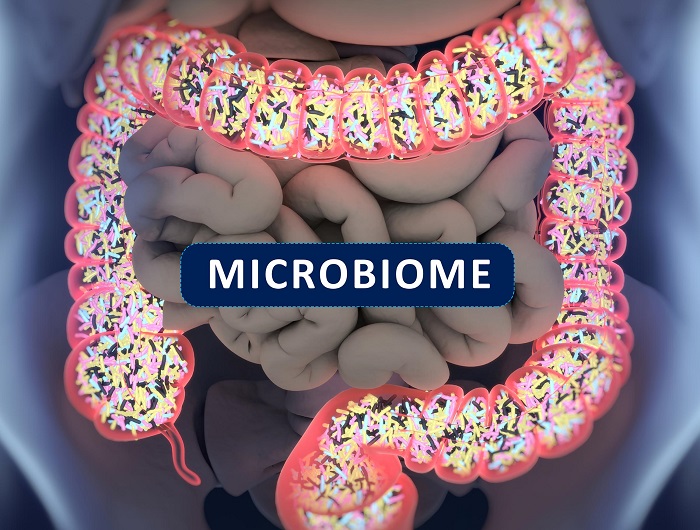
There’s an often-told story, reportedly from Cherokee folklore, about a Cherokee elder who is teaching his grandson about life.
“A fight is going on inside me,” he says to the boy. “It’s a terrible fight between two wolves. One is evil — he is anger, envy, sorrow, regret, greed, arrogance, self-pity, guilt, resentment, lies, false pride, and ego.
The other is good — he is joy, peace, love, hope, serenity, humility, kindness, empathy, generosity, truth, and compassion. The same fight is going on inside you — and inside every other person, too.”
The grandson thinks for a minute and then asks, “Which wolf will win?”
The old Cherokee replies, “The one you feed.”
When it comes to the bacteria in your gut, every time you eat, you are feeding somebody. Unfortunately, the modern industrialized diet is all too often feeding the bad guys and, just as important, starving the good.
To put it simply, “bad” bacteria tend to feed on sugar and unhealthy fats (yes, I’m talking about you, junk food!). And the single most important nutrient that good bacteria need to thrive inside you is fiber.
When they have plenty of fiber, they can do their job — and your digestion, mental function, and even your mood reap the benefits.
It’s clear that fiber is critical to gut health. But less than 5% of Americans get the recommended 25 to 30 grams per day.
It’s estimated that our Paleolithic ancestors got an average of up to 100 grams per day. Compare that to the average Brit, who gets only 18 grams per day, and the average American, who gets even less — just 15.
Most of us are literally starving the good bacteria that would, if we only gave them the chance, be digesting our food and making the brain-boosting chemicals we need to thrive.
How to Nurture the Good Guys and Support Your Gut Health:
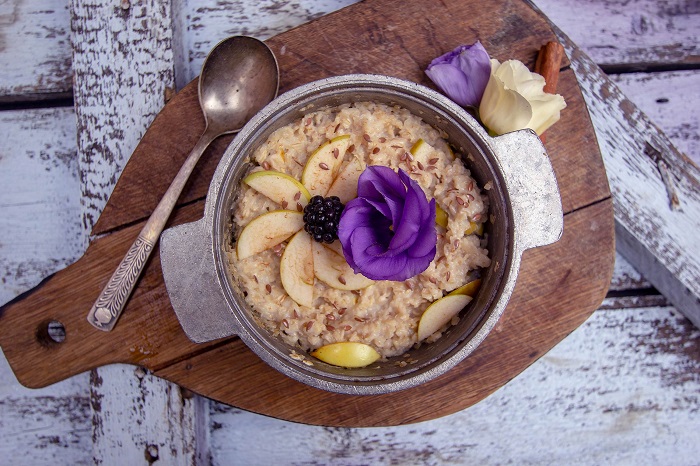
We know that junk food, lack of fiber, glyphosate, antibiotics, and other toxins can compromise the bacteria upon which your digestion and brain health depend. Is there anything you can do about it?
Yes! There’s a lot you can do to nurture a healthy microbiome and to support a flourishing collection of beneficial bacteria in your digestive tract.
1) Don’t kill the good ones:
When you steer clear of unnecessary antibiotics, glyphosate, and environmental toxins, you help to create the conditions for microbial health. Organic food, anyone?
2) Don’t feed the bad ones:
A diverse population of health-promoting flora protects your gut from the less helpful strains. But not all flora are good for you. A diet high in sugar, unhealthy fat, and processed food can feed the very kinds of flora that will cause gas, discomfort, bloating, and chronic inflammation.
3) Feed the good ones:
Probiotics – are the so-called “good” microorganisms inside your gastrointestinal tract. They aid in digestion and keep your tummy happy. Like all living things, probiotics must be fed in order to remain active and vibrant.
Prebiotics – are the food that probiotics need to thrive. They’re a type of plant fiber that humans can’t digest and that take up residence inside your large intestine. The more of these prebiotics you feed to your probiotics, the more efficiently they’ll do good work inside you.
The simplest way to think of it is this: If you want to nurture good bacteria, eat lots of fiber. Whole plant foods — especially fruits, vegetables, legumes, and whole grains — have the most.
As New York Times personal health columnist Jane Brody writes, “People interested in fostering a health-promoting array of gut microorganisms should consider shifting from a diet heavily based on meats, carbohydrates, and processed foods to one that emphasizes plants.”
If your probiotic bacteria were in charge of the menu, they’d want abundant sources of prebiotic fibers like inulin and oligofructose, as well as pectin, beta-glucans, glucomannan, cellulose, lignin, and fructooligosaccharides (FOS). If you don’t know how to pronounce these names, don’t worry. Luckily, you don’t need a degree in biochemistry to eat good food.
Some top superfoods that provide an abundance of the best microbe-fueling nutrients include – gum arabic (sap from the acacia tree, often sold as the supplement acacia fiber), chicory root, Jerusalem artichoke, baobab fruit, dandelion greens, garlic, leek, onion, asparagus, wheat bran, banana, jicama, apples, barley, oats, flaxseed, cocoa, burdock root, yacon root, and seaweed.
4) Eat the good ones:
The word probiotic comes from the Greek for “support of life.” The two main ways to consume probiotics are in dietary supplements and in fermented foods. Probiotics have been found to be helpful in treating irritable bowel syndrome, diarrhea, colitis, acne, and eczema.
But they don’t always work. A lot of people are taking probiotic supplements that are pretty much just a waste of money.
The challenge is that the vast majority of probiotic bacteria are active and effective in the lower portions of the gastrointestinal (GI) tract, but to get there, they must survive the corrosive and highly acidic environment of your stomach.
When are the odds the best — on an empty stomach, or with a meal?
Researchers attempted to settle this question with a study reported in the journal Beneficial Microbes in 2011. (Yes, although it may never rival People magazine for newsstand popularity, that really is the name of a journal!)
The team built a fake digestive tract with a fake stomach and intestines, but complete with real saliva and digestive enzymes, acid, bile, and other digestive fluids. They put probiotic capsules into this stomach “empty” and with a variety of foods, and tested how many survived the trip.
What did they find? Probiotic bacteria had the highest rates of survival when provided within 30 minutes before or simultaneously with a meal or beverage that contained some fat.
This makes sense. Consuming probiotics with food provides a buffering system for the bacteria, helping to ensure safe passage through the digestive tract. But consuming them after a large meal could slow everybody down, making bacteria more likely to die in the corrosive stomach environment before reaching their intended new home in the lower intestine. So right before, or with, a meal that includes some fat seems the best way to go.
Which Probiotic Supplements Are Best:
There are thousands of probiotic products on the market, with each company or retailer telling you theirs is best.
The factors I look at in evaluating a probiotic supplement are:
- Price: No one likes to waste money.
- CFUs (Colony-forming units): This is the total count of all the bacteria in the probiotic. There’s a huge range, with brands offering anywhere from 1 billion to 100 billion CFUs per dose. The bigger the number, the more beneficial bacteria you get.
- Strains: The total number of different types of bacteria in each probiotic varies greatly. Diversity is good. Every expert has a favorite combination, but the reality is that we know very little about how the various strains interact with the human body. A broad spectrum of different kinds is likely to give you the best odds of success.
- Expiration date: Some probiotic supplements get so old that the bacteria are literally dead by the time they reach the consumer. Check expiration dates.
Digestive & Gut Health Products:
- Miracle Probiotic: 8-Strains and 30-Billion CFU’s of Gastrointestinal Tract Flora Bacteria
- Roex Probiotics For Life: An easy, powerful way to replenish beneficial bacteria into your Digestive Tract
- Roex Digestive Balance: A full spectrum of Digestive Enzymes needed to digest every component of food, including protein, carbohydrates and fat
- Roex Choline Bitartrate w/Betaine HCL: Contains 500mg of Betaine HCL, which is critical for the proper digestion and breakdown of proteins, and the emulsification of fats. It also increases the stimulus of smooth muscles, like the muscles of the urethra and bladder
What About Fermented Foods:
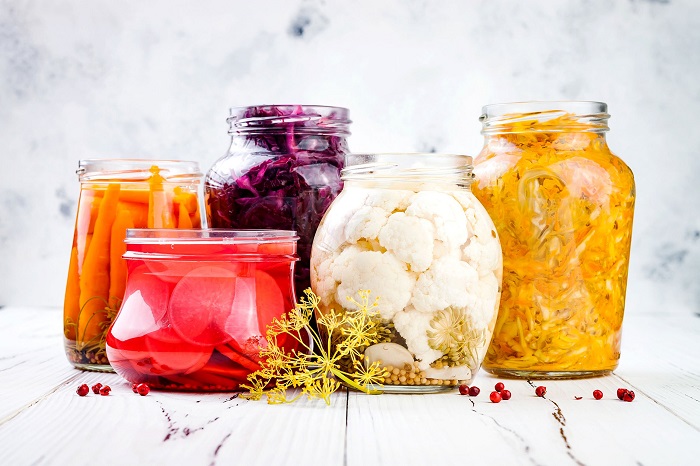
Fermentation helps to preserve food and creates beneficial enzymes, B vitamins, and numerous strains of probiotics.
Natural fermentation has been shown to preserve nutrients and to break some foods down to a more digestible form.
The most studied is kimchi, a traditional Korean food made from fermenting salted cabbage with a variety of vegetables and spices (sometimes salted shrimp or anchovy is included, as well).
In addition to, or perhaps in part because of, its probiotic properties, studies have shown that kimchi can help fight cancer, obesity, effects of aging, and constipation while contributing to your immune system, skin health, and brain health.
Other popular fermented foods include sauerkraut, yogurt (which can be made from cow, soy, coconut, or almond milk), kefir, miso, natto (made by boiling and fermenting soybeans with bacteria), beet kvass (a fermented beet drink), vinegar, and kombucha.
Some fermented foods are used in condiments, while others make a tasty snack or topping. Remember not to cook them if you want to preserve the probiotics.
Keep in mind that some probiotic kefirs and yogurts come loaded with added sugar. Even if there are beneficial bacteria in these probiotics, the sugar will feed “bad” bacteria already in your gut. Always check labels for sugar content.
If you want to do your own fermentation, I recommend finding a good book or website to guide you. A book to consider is Fermented Vegetables by Christopher and Kirsten Shockey.
Some people using homemade fermented foods are experiencing great benefits.
Like Emily Iaconelli, for example. At the age of 17, after growing up on the modern industrialized diet, Emily developed irritable bowel syndrome, migraines, and emergent arthritis. She suffered from massive bloating and chronic pain, and became resigned to a life of embarrassing pain and urgent bathroom runs.
After 20 years of misery, she joined a Food Revolution Network event I was hosting and decided to turn her kitchen upside down.
Emily began enjoying a whole-food, plant-powered diet that featured an abundance of fermented foods, such as kimchi, fermented vegetables, tempeh, homemade almond milk yogurt, and miso. Her fiber consumption went up dramatically, providing abundant nourishment for the probiotics now streaming into her body every day.
The journey was difficult. Emily had to squeeze in all her learning and food preparation while working full-time and raising a two-year-old daughter. But every step she took seemed to give her more energy and stamina, which fueled her actions as well as her determination.
Eventually, her irritable bowel syndrome, migraines, and emergent arthritis all disappeared. And her daughter, now five, loves to cook and has decided that her favorite food is… broccoli!
Listen to Your Gut:
True gut instincts can provide an essential source of wisdom, clarity, and discernment. Does your gut tighten when you confront danger, or soften in the presence of an epiphany?
Whatever your relationship is with your gut, and however clearly it does or doesn’t speak to you, I’d like to invite you to consider a possibility.
What if you didn’t think of your gut as being yours alone? What if you conceived of it as being home, also, to trillions of microbes that can tell you what’s good for you or let you know when you’re hungry (because they are)?
When you’re in a symbiotic relationship with the community of critters inside you, you can feel pride in feeding the good ones. You can feel gratitude for how they help you digest food, secrete brain-boosting neurotransmitters, and protect you from harm. And you can feel it’s your responsibility to protect and work in harmony with them for your own ultimate well-being along with theirs.
Tell us in the comments:
- Does this help you understand gut health?
- What is your experience with healing your gut or keeping your gut happy?
